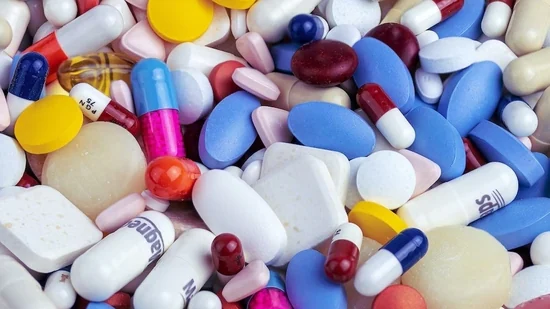Can Psychedelics Cure Anxiety and Depression? Here’s What Recent Studies Reveal
In recent years, psychedelics have moved from the fringes of drug culture to the forefront of cutting-edge research in mental health. Once dismissed as dangerous or recreational substances, psychedelics like psilocybin (the active compound in “magic mushrooms”), MDMA, and LSD are now being hailed by some researchers and mental health professionals as potential breakthroughs in the treatment of anxiety and depression. New studies suggest these substances may offer relief where traditional therapies have fallen short, sparking a surge of interest in their therapeutic potential.
The Psychedelic Renaissance: A New Approach to Mental Health
The so-called “psychedelic renaissance” refers to the growing body of research focused on the potential therapeutic benefits of these substances. In recent studies, psychedelics have shown promising results in reducing symptoms of anxiety, depression, and post-traumatic stress disorder (PTSD), particularly in cases where conventional treatments like antidepressants or talk therapy have been ineffective.
One of the most notable findings comes from studies involving psilocybin, a naturally occurring psychedelic compound found in certain mushrooms. Psilocybin has been shown to create profound shifts in consciousness, often described as mystical or transcendent experiences. These experiences seem to help patients break free from deeply ingrained patterns of negative thinking, which is particularly relevant for those suffering from chronic depression or anxiety.
Recent Study: Psilocybin and Major Depression
A groundbreaking study published in JAMA Psychiatry in 2023 explored the effects of psilocybin on people suffering from major depressive disorder. The double-blind, placebo-controlled trial involved 90 participants who received two doses of psilocybin alongside supportive psychotherapy. The results were striking: participants who received psilocybin experienced a rapid and sustained reduction in depressive symptoms, with some reporting long-lasting improvements that persisted for weeks or even months after the treatment.
According to the study’s lead author, the most impressive finding was that many participants felt a profound sense of psychological “reset” after the treatment, describing their experience as a turning point in how they viewed their lives and their mental health struggles. The effects were not just immediate but enduring, challenging the conventional view that depression is a lifelong condition requiring continuous pharmaceutical management.
MDMA and Anxiety: Breakthroughs in PTSD Treatment
While psilocybin has captured much of the media attention, MDMA (commonly known as ecstasy) has also shown promise, particularly in treating anxiety and PTSD. In a Phase 3 clinical trial sponsored by the Multidisciplinary Association for Psychedelic Studies (MAPS), participants with severe PTSD who received MDMA-assisted therapy experienced significant reductions in their symptoms.
In the trial, 67% of participants no longer met the diagnostic criteria for PTSD after just three sessions of MDMA therapy. This breakthrough has led the U.S. Food and Drug Administration (FDA) to designate MDMA as a “breakthrough therapy” for PTSD, signaling that full approval for medical use may not be far off.
MDMA appears to work by promoting emotional openness and reducing fear, making it easier for patients to confront traumatic memories in a therapeutic setting. For those suffering from anxiety, particularly trauma-related anxiety, the potential of MDMA to heal deep emotional wounds is being recognized as a game-changer in the mental health community.
How Psychedelics Work: A Neurological Perspective
Psychedelics affect the brain by interacting with serotonin receptors, specifically the 5-HT2A receptor, which is thought to play a key role in mood regulation and perception. Unlike traditional antidepressants, which typically need weeks or months to take effect, psychedelics appear to catalyze rapid changes in brain connectivity and emotional processing.
Studies using brain imaging techniques have shown that psychedelics reduce activity in the brain’s default mode network (DMN), a region associated with self-referential thinking and rumination. Overactivity in the DMN is often linked to depression and anxiety, as it can cause individuals to become trapped in cycles of negative thoughts. By quieting the DMN, psychedelics allow the brain to break free from these patterns, fostering new ways of thinking and feeling.
Moreover, the profound, sometimes mystical experiences reported by patients often involve feelings of unity, connection, and a dissolution of ego boundaries, which can lead to significant emotional breakthroughs.
Caution and Considerations
Despite these promising results, psychedelics are not a cure-all, and experts urge caution in interpreting these findings. The use of psychedelics for mental health treatment is still in its early stages, and more research is needed to fully understand the risks and benefits. Side effects, while generally mild, can include temporary increases in anxiety, nausea, and confusion. Moreover, psychedelics are not recommended for individuals with a history of psychosis or certain heart conditions.
Additionally, these therapies are typically conducted in carefully controlled settings with trained therapists. Self-medicating with psychedelics in uncontrolled environments carries significant risks, including the potential for adverse psychological reactions or “bad trips.”
Looking Forward: The Future of Psychedelic Therapy
The FDA’s recent approval of clinical trials and the increasing number of studies on psychedelics signal a potential paradigm shift in how we treat mental health conditions. Researchers are hopeful that psychedelics could offer new avenues of treatment for millions of people suffering from anxiety, depression, PTSD, and other mental health challenges.
While psychedelics are not yet widely available as approved treatments, the ongoing studies suggest that they may soon become a critical tool in the fight against mental illness. With further research, psychedelics could revolutionize mental health care, offering hope to those for whom traditional treatments have not provided relief.
In conclusion, while psychedelics are showing great promise in treating anxiety and depression, they are not a simple fix. As the research continues to unfold, the potential for these substances to become mainstream therapeutic tools appears to be within reach—if supported by rigorous science and responsible usage.




























